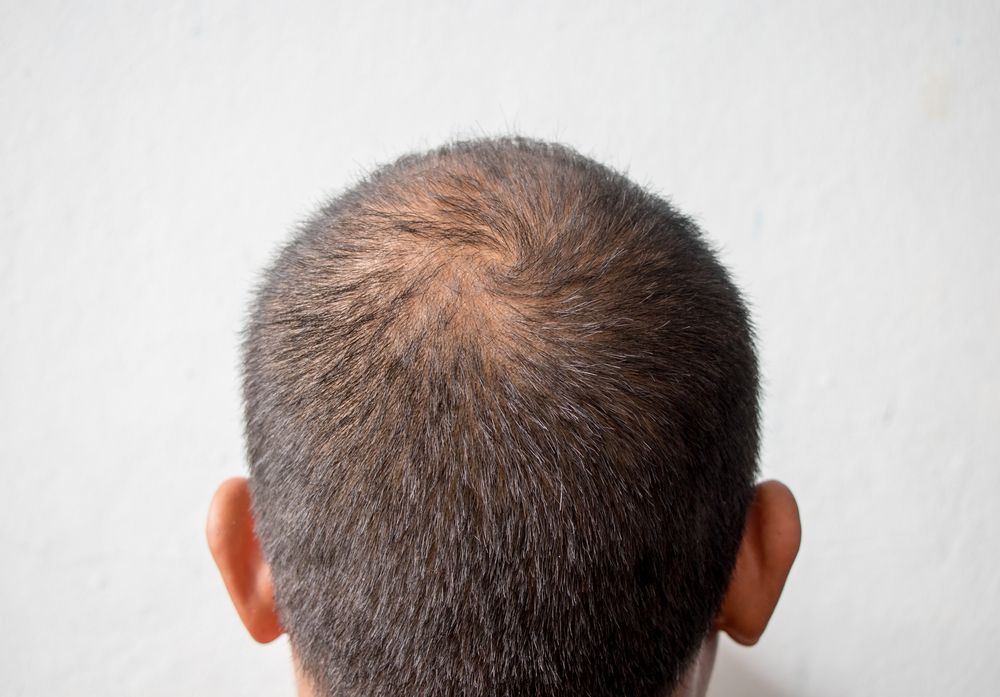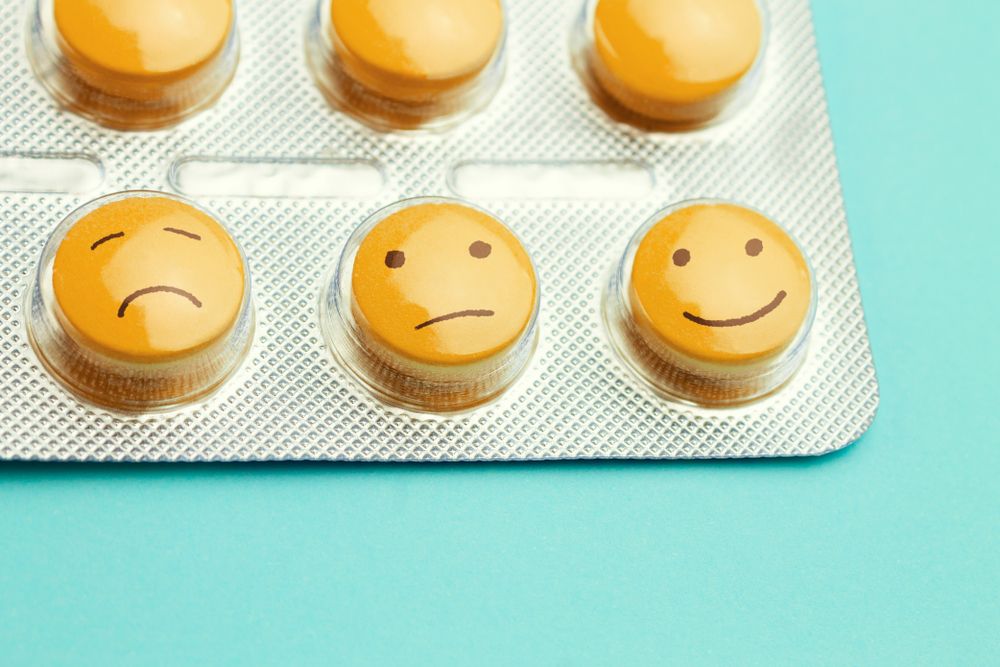Is Finasteride Safe for Men? (Short-Term and Long-Term Effects)
Finasteride is generally safe for men, but it comes with the potential for both short-term and long-term side effects. It is a medication that can treat male pattern baldness and benign prostatic hypertrophy (BPH). It is prescribed to cisgender men far more commonly than any other group since its effects on hormone balance in other people is not yet fully understood. Even so, many men still have concerns about how the drug will affect them. (Learn More) Of its less serious side effects, finasteride can affect sexual function and cause depression. Some people have a more serious reaction, developing things like hives or breathing troubles. These may be the signs of an allergic reaction, and you should contact your doctor immediately. (Learn More) Potentially dangerous short-term effects can occur in a small minority of people who use finasteride. Watch out for signs of an allergic reaction, and be aware of any depression you feel. If you are having an allergic reaction or suicidal thoughts, seek help immediately. (Learn More) In the long term, the potential for decreased sexual function in men is a worry for many users. This symptom is very rare. There have been some cases of users having trouble with sexual functioning even after stopping the drug, but these cases are even rarer. Since finasteride does not cure BPH or male pattern baldness but only treats their symptoms, you may still have to struggle with sexual function in the long term if you keep using the medication. (Learn More) When taken properly, finasteride is not an especially dangerous medication. While it is possible to have a bad reaction to it, this is rare and treatable if you remain aware and seek medical help as soon as you notice a problem. Otherwise, it is unlikely to cause any permanent harm. Talk to your doctor about your concerns. They can help you determine if finasteride’s benefits will outweigh its drawbacks if you are struggling with BPH or male pattern baldness. (Learn More)

Finasteride for Men
Finasteride is a medication used to treat male pattern baldness and benign prostatic hypertrophy (BPH). Generally, it takes about three months to show results when used for hair loss and six months to reduce the symptoms of BPH. Finasteride blocks the metabolism of testosterone, which can help with both conditions, although the drug’s exact mechanism of action is not entirely understood. Its use is relatively well studied among cisgender men, although there are some holes in that research (discussed below). Among women, its potential effects are not fully clear, though it likely has some applications among this group as well. The medication does not cure the conditions it is used to treat. Finasteride will treat symptoms when used, but the symptoms will slowly return if you go off the medication.
Side Effects of Finasteride
Finasteride can cause a number of side effects. The following are the most common:
Inability to get or maintain an erection
Decreased sexual desire
Problems with ejaculation
Pain in the testicles
Depression
These side effects are generally not of major concern unless they are especially serious. If they are severe, contact your doctor immediately. The following side effects of finasteride require immediate medical attention:
Changes in the breasts, such as size changes, bumps, discomfort, or nipple discharge
Rash
Burning or itchy sensation
Hives
Swelling of the lips and face
Trouble breathing or swallowing
These symptoms have the potential to represent immediately life-threatening issues, as discussed below.
Short-Term Risks
All of the serious potential side effects of finasteride may signal you are having some kind of allergic reaction to the medication. This does not necessarily mean your life is in immediate danger, but it does mean you should get in contact with a medical professional as soon as possible. Difficulty breathing or swallowing is an especially dangerous symptom. Call 911 immediately. Depression is a potential short-term symptom that can present long-term issues if untreated. If it begins to manifest in suicidal thoughts, even if you do not intend to act on them, seek help immediately from a mental health professional and contact your doctor. If you are having thoughts of self-harm, call a suicide hotline such as the National Suicide Prevention Lifeline at 1-800-273-8255.
Long-Term Risks
Overall quality of life should be considered when weighing finasteride’s benefits and drawbacks. About 4 to 6 percent of men using finasteride will experience problems related to sexual function. In 2012, the FDA issued a warning that these symptoms may persist even after a user stops taking the medication. Though concerning, this warning was based on 100 reports on the issue made over 20 years. It is unlikely a user taking finasteride will suffer problems related to sexual function after they stop taking their medication, although the exact prevalence of this issue is not fully known. Finasteride does not cure either BPH or androgenic alopecia (male pattern baldness). You will have to take the drug regularly to treat the symptoms of both conditions. This means any negative side effects will persist as long as you want the symptoms of the disorder controlled by the medication. Finasteride was once thought to potentially increase the risk of particularly serious cases of prostate cancer. However, long-term follow-up research on that concern has shown it to be unfounded. In actuality, it seems to decrease a user’s risk of prostate cancer. While the exact nature of that study is beyond the scope of this article, it was quite extensive and its results should be considered reliable.
Is Finasteride Safe?
Like most medications, finasteride has risks. It is a drug and should only be taken as prescribed. It is unlikely, but not impossible, that you will have a bad reaction to it even if you take it correctly. At the same time, its effects on men are fairly well studied. It is unlikely to cause men long-lasting harm, and it can help with BPH and male pattern baldness, both of which can be uncomfortable or embarrassing issues for many men. Finasteride will be safe for the majority of users, so long as they remain aware of its dangers and contact a doctor immediately if there are any serious issues. Whether it is the best fit for your needs will depend on how your body reacts to it and how well it treats your unwanted symptoms of either BPH or male pattern baldness. Stay in touch with your doctor as you begin taking the medication, and make them aware of any issues that arise.
References
Finasteride. (January 15, 2018). MedlinePlus.
Finasteride (Oral Route). (April 1, 2019). Mayo Foundation for Medical Education and Research (MFMER).
Should I Worry About Finasteride Side Effect Reports? (January, 2013). Harvard University.
National Suicide Prevention Lifeline. Substance Abuse and Mental Health Services Administration (SAMHSA).
Finasteride Safe, Long-Term Results Show. (May 19, 2018). SWOG.

Related Articles

Saw Palmetto for Hair Loss: What the Science Shows
Saw palmetto is a small tree that grows in southeastern...

Metformin & Hair Loss: What Does the Science Indicate?
Metformin is a treatment for type II diabetes. One of the...

Using Tretinoin for Wrinkles and Aging (Dosage & Other Info)
Tretinoin is a retinoid, a class of vitamin A-based drugs...

Pros and Cons of Trintellix vs. Other Antidepressants
Trintellix is an atypical antidepressant medication...
